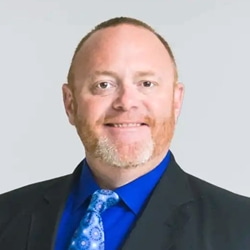There were 464.7 million podcast listeners and 3 billion radio listeners worldwide as of 2023. If you're a business or marketing leader or other professional who isn't taking advantage of those two powerful mediums to share your message, you're letting amazing opportunities slip right past.
An appearance on a well-known podcast or radio show is one of the fastest tracks to becoming a thought leader—something many other professionals in your industry strive for.
But to achieve that goal, you must know how to make (and get) the most of your podcast or radio interview.
Do your due diligence before being on a podcast or radio show
The first thing you should do as soon as you book an appearance on a radio show or podcast is to research the show and its host to identify their target audience—so you can tailor your message accordingly.
Listen to a few episodes of the show to better understand the format and what to expect, then prepare and practice delivering key talking points to ensure you know how to get your message across. But be careful not to just write and read off of a script; doing so could lead to seeming overly rehearsed and unengaging during the interview.
Preparation will also ensure that you're as ready as possible for the conversation to be concise.
Many podcasts—and almost all radio shows—have a strict time limit on how long interviews can last. If you are not concise and deliberate with what you have to say, you could end up in a situation where the interview must be cut short before you hit all your talking points. Don't be afraid to take the conversation in exciting and interesting new directions, but also avoid going off on too many irrelevant tangents.
Your goal as a guest on a radio show or podcast should be to become a storyteller. The easiest way to connect with an audience is to create an emotional connection meaningful to them, using personal anecdotes or case studies to illustrate your message. That's also an excellent way to a feeling of authenticity to your message.
Make your podcast or radio appearance an engaging conversation
One of the biggest mistakes you can make as a guest on a podcast or radio show is to think that you're there only to talk. Yes, there is a purpose you hope to accomplish and a message you want to share, but effective communication is a two-way street.
Listen attentively to the questions and comments of the host and respond thoughtfully—and try to ensure the conversation flows naturally. If you aren't answering the questions the host asks, or you answer them in a roundabout way to bring it back to your prepared talking points, listeners could easily tune out of the conversation.
At the same time, it's essential to engage with the host, as the most boring podcasts are those in which it's just the host or guest doing a monologue. Instead, strive to create a legitimate dialogue in which both you and the host add valuable content to the discussion.
When appropriate, ask the host questions, offer your own insights, and build on the host's points to create a deeper, more meaningful, and (most important) more engaging listening experience for the audience.
Keep engaged in the conversation after a podcast or radio appearance
The work doesn't stop after your appearance on the show. The best way to extend the reach of your radio and podcast appearances is to promote them online, including through social media and your website.
- Use hashtags and tag relevant people and organizations to get more exposure for your appearance—particularly if you discuss a topic that is "hot" or in the news.
- Encourage those in your network to listen to the interview and share so you get your message out to more listeners.
- Finally, help create a genuine conversation with your listeners by engaging with your audience and followers by commenting and sending direct messages. Encourage them to ask questions about anything they want to know more about, or to contact you via email or direct message to discuss further.
Keeping the conversation going in this manner after the show will not only grow your social media following and presence but also may get you even more opportunities to speak on the topic in the future.
After all, the goal of podcast and radio appearances is to cement yourself as an expert—and there's no better way to do that than to engage in insightful conversation.
* * *
Radio and podcast appearances can be powerful ways to spread your message to an audience of devoted listeners who might convert into potential leads.
However, to take advantage of each medium, you must understand how to tailor your message to the audiences that listen to these types of shows. And you need to emphasize the human elements of your message: They are most likely to keep your audience members engaged while they're listening—and encourage them to subsequently share the interview with their own networks.
More Resources on Audio Media (Podcast & Radio) Appearances
10 Tips for Successful Media Appearances
How to Become a Great Media Spokesperson
How to Become a Thought Leader (and Why You Should): Mitchell Levy on Marketing Smarts [Podcast]




